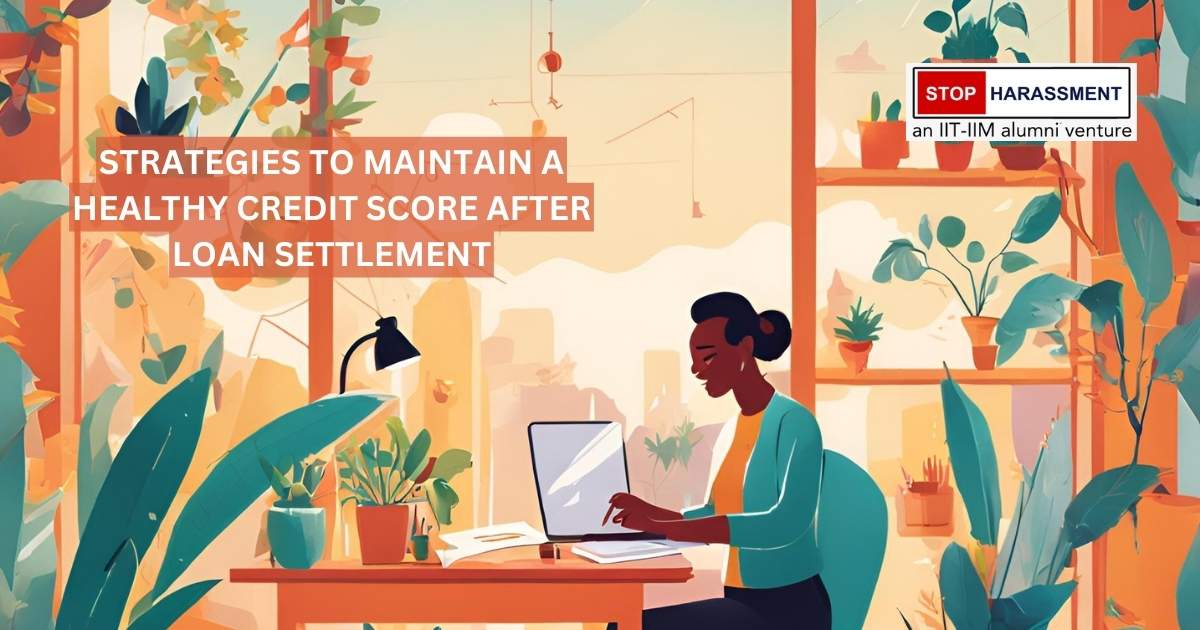· Debt Resolution · 4 min read
Borrower Rights in Payday Loan Repayment
Payday loans provide quick relief but come with high interest rates and aggressive recovery tactics. Understanding borrower rights and protections in repayment is essential to avoid debt traps and exploitation.
.BRHoz0Cm.jpg)
Short-term loans, often referred to as payday loans, are designed to provide immediate financial relief to borrowers in need of quick cash. This type of loan is popular among borrowers who are in urgent need of money but do not have access to formal credit avenues. However, these short-term loans have high interest rates, hidden fees, and aggressive recovery tactics, which can leave the borrower in a debt trap.
For fair treatment during the repayment of the loan, it is important to understand the borrower’s rights and legal protections. An overview of payday loans in India is given in this blog, along with information about the difficulties borrowers encounter and the rights they have to protect themselves.
Overview of Payday Loans and Common Issues for Borrowers
Payday loans are usually unsecured, short-term loans that are meant to be repaid by the borrower in a short period of time. Even though these loans are easily accessible and require minimum documentation, they often have:
Excessively high interest rates: In these loans, the APR (annual percentage rate) can range somewhere between 24% to 60%.
Hidden fees and penalties: Penalties for late payments are frequently extremely high.
Predatory lending practices: Borrowers’ lack of financial literacy or their desperate situations can lead to their exploitation by lenders.
Borrowers frequently encounter challenges like:
Debt traps: Borrowers can be forced to take new loans to clear their old ones as they are unable to repay them through their own finances.
Harassment: Debt recovery agents can be aggressive and may use abusive language to intimidate borrowers.
Lack of awareness: Borrowers are often vulnerable to exploitation as they are unaware of their rights.
Consumer Rights in Payday Loan Repayment
In India, borrowers have several rights when repaying payday loans:
Right to Transparency
The borrower has the right to know about loan terms, interest rates, and additional charges.
The RBI mandates fair lending practices and discourages misleading advertisements.
Right to Privacy
- Personal data of the borrower cannot be shared without his or her consent. Sharing photos and contacting relatives to shame the borrowers and intimidate them is strictly prohibited.
Right to Fair Recovery Practices
Lenders are required to adhere to ethical recovery processes as per RBI norms.
There are legal penalties for any kind of abuse, threats, or harassment.
Legal Protections Against Excessive Interest and Fees
India lacks specific laws governing payday loans, but broader financial regulations apply:
RBI Guidelines: NBFCs which offer payday loans must adhere to RBI guidelines, including fair pricing of loans.
Consumer Protection Act, 2019: Excessive fees or hidden charges can be challenged by the borrowers as unfair trade practices.
Indian Penal Code (IPC): Borrowers can file complaints under IPC sections if they face threats or intimidation. In case the borrower is facing extreme harassment and threats, they can file a complaint under the Bharatiya Nyaya Sanhita (BNS).
Illustration: For one month, a borrower who took out a ₹10,000 payday loan with a 30% interest rate was assessed an extra ₹3,000 as a “processing fee.” Under which clause of the Consumer Protection Act may the borrower file a complaint about this as an unfair practice?
- The additional ₹3,000 “processing fee” may be reported by the borrower as an unfair trade practice under Section 2(47) of the Consumer Protection Act, 2019, which deals with dishonest activities such as providing false information about terms and conditions or levying unstated fees.
Handling Harassment or Abusive Collection Practices
If borrowers face harassment, they can take the following steps:
File a Complaint: The lender’s grievance redressal system is the first place where borrowers should file a complaint. Bring the matter before the RBI Ombudsman if it isn’t resolved in 30 days. Expert assistance can improve the case by guaranteeing appropriate paperwork, legal counsel, and successful negotiation for a settlement in accordance with relevant laws and RBI regulations.
Contact Local Authorities: Borrowers can take the help of local authorities like the police.
Illustration: When a lender’s representative came to a borrower’s house, they threatened their family. After complaining to the police, the borrower brought the issue up with the RBI.
Steps to Dispute Payday Loan Terms
Borrowers can challenge unfair terms or recoveries through:
Negotiation: Borrowers who are undergoing financial problems can negotiate with the lenders for settlement or an extended repayment period.
Consumer Forums: Borrowers can file a complaint for misrepresentation or unfair practices.
Legal Aid: Seek expert assistance in order to contest excessive terms or unlawful recovery practices.
Conclusion
Even though they can be a lifesaver in times of need, payday loans have a number of serious hazards. Borrowers must use their rights to safeguard themselves against harassment and exploitation. The key to avoiding debt traps is to stay aware, practice financial discipline, and seek professional counsel when necessary.
The foundation of a more equitable and balanced financial system is providing borrowers with information and legal options. Borrowers can make sure their interests are protected by opposing unfair practices and campaigning for more robust regulatory regimes.

 (Stopharassment) Chasing Dues the Right Way Understanding Legal Debt Recovery.CEsdngE0.jpg)

